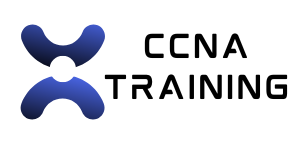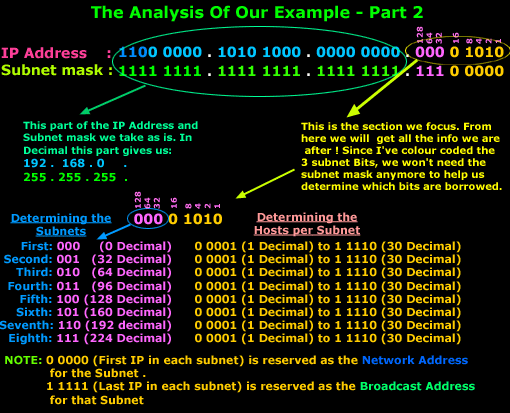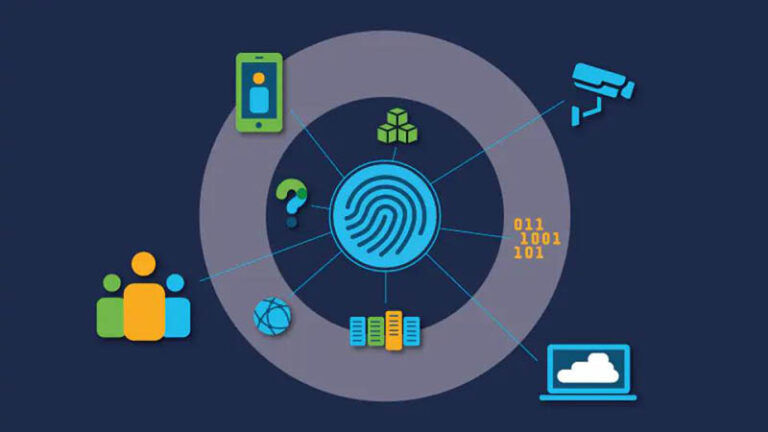A Cisco Network Associate plays a crucial role in the design, implementation, and maintenance of networking systems. They are responsible for ensuring that an organization’s network infrastructure operates efficiently and securely. Cisco Network Associates work with a variety of networking technologies, including routers, switches, firewalls, and wireless access points. They also troubleshoot network issues, perform regular maintenance, and provide support to end users. In addition, they may be involved in the planning and implementation of new network solutions to meet the evolving needs of the organization.
Cisco Network Associates are essential to the smooth operation of an organization’s network infrastructure. They must have a strong understanding of networking principles and technologies, as well as the ability to troubleshoot and resolve issues quickly and effectively. They also need to stay up-to-date with the latest networking trends and technologies to ensure that the organization’s network remains secure and efficient. Overall, Cisco Network Associates play a critical role in ensuring that an organization’s network infrastructure meets the needs of its users and supports the overall goals of the business.
Key Takeaways
- A Cisco Network Associate is responsible for implementing and maintaining Cisco networking solutions.
- Prerequisites for becoming a Cisco Network Associate include a basic understanding of networking concepts and experience with Cisco technologies.
- When choosing the right Cisco certification path, consider your career goals and the specific skills and knowledge you want to acquire.
- Studying for the CCNA exam involves using official Cisco study materials, practicing with hands-on labs, and seeking out additional resources such as study groups or online forums.
- Gaining practical experience in networking is essential for becoming a successful Cisco Network Associate and can be achieved through internships, entry-level positions, or volunteer work.
- Advancing your career as a Cisco Network Associate may involve pursuing higher-level Cisco certifications, gaining specialized skills, and seeking out leadership opportunities.
- Resources and support for Cisco Network Associates include Cisco’s official website, online communities, professional networking events, and continuing education opportunities.
Prerequisites for Becoming a Cisco Network Associate
Becoming a Cisco Network Associate requires a strong foundation in networking principles and technologies. While there are no formal educational requirements to become a Cisco Network Associate, most employers prefer candidates with a bachelor’s degree in computer science, information technology, or a related field. In addition to formal education, candidates should also have practical experience in networking, either through internships, part-time jobs, or self-study.
In terms of technical skills, aspiring Cisco Network Associates should have a solid understanding of networking concepts such as IP addressing, subnetting, routing, and switching. They should also be familiar with networking protocols and technologies, including TCP/IP, Ethernet, VLANs, and VPNs. Additionally, candidates should have experience working with networking equipment such as routers, switches, and firewalls. Strong problem-solving and troubleshooting skills are also essential for success in this role.
Choosing the Right Cisco Certification Path
Cisco offers a range of certification paths for IT professionals, each designed to validate specific skills and expertise. For those looking to become a Cisco Network Associate, the most relevant certification is the Cisco Certified Network Associate (CCNA). However, within the CCNA certification track, there are several specialization options to choose from, including CCNA Routing and Switching, CCNA Security, CCNA Wireless, and CCNA Data Center.
When choosing the right certification path, it’s important to consider your career goals and interests. For example, if you’re interested in working with network security technologies, the CCNA Security certification may be the best fit for you. On the other hand, if you’re more interested in wireless networking, the CCNA Wireless certification may be a better choice. It’s also important to consider the demand for specific skills in the job market and how each certification aligns with your long-term career goals.
Studying for the Cisco Certified Network Associate (CCNA) Exam
| Category | Metric |
|---|---|
| Study Time | Hours per day |
| Practice Tests | Number of tests taken |
| Topics Covered | Number of chapters completed |
| Score Improvement | Percentage increase in practice test scores |
Studying for the CCNA exam requires dedication and a structured approach. There are several resources available to help you prepare for the exam, including official Cisco training courses, study guides, practice exams, and online forums. It’s important to create a study plan that covers all the topics included in the exam blueprint, such as network fundamentals, network access, IP connectivity, IP services, security fundamentals, automation and programmability.
In addition to studying the theoretical aspects of networking, it’s also important to gain hands-on experience with networking equipment. Setting up a home lab or using virtualization software can provide valuable practical experience that will help you understand how networking technologies work in real-world scenarios. Practice labs and simulations can also help you prepare for the hands-on portion of the CCNA exam.
Gaining Practical Experience in Networking
Practical experience is essential for becoming a successful Cisco Network Associate. This can be gained through internships, part-time jobs, or volunteer opportunities that allow you to work with networking technologies in a real-world setting. Many organizations also offer entry-level positions that provide on-the-job training and mentorship for aspiring network professionals.
In addition to gaining practical experience through traditional means, aspiring Cisco Network Associates can also benefit from participating in networking communities and online forums. These platforms provide opportunities to connect with other professionals in the field, share knowledge and experiences, and stay up-to-date with the latest networking trends and technologies.
Advancing Your Career as a Cisco Network Associate

Once you’ve obtained your CCNA certification and gained some practical experience in networking, there are several ways to advance your career as a Cisco Network Associate. One option is to pursue additional certifications within the Cisco certification track, such as the Cisco Certified Network Professional (CCNP) or Cisco Certified Internetwork Expert (CCIE). These certifications validate advanced skills and expertise in specific areas of networking and can open up new career opportunities.
Another way to advance your career is to specialize in a specific area of networking, such as security, wireless networking, or data center technologies. By gaining expertise in a specialized area, you can position yourself as a subject matter expert and take on more challenging roles within your organization or seek opportunities with other employers.
Resources and Support for Cisco Network Associates
Cisco Network Associates have access to a wide range of resources and support to help them succeed in their careers. This includes official Cisco training courses, study materials, and practice exams to help prepare for certification exams. In addition, Cisco offers a variety of online communities and forums where professionals can connect with others in the field, share knowledge and experiences, and stay up-to-date with the latest networking trends and technologies.
In addition to official Cisco resources, there are many third-party training providers that offer courses and study materials for Cisco certifications. These providers often offer flexible learning options such as online courses or self-paced study materials that cater to different learning styles and schedules.
Overall, becoming a successful Cisco Network Associate requires a combination of education, practical experience, and ongoing learning. By staying up-to-date with the latest networking technologies and trends and continuously improving your skills through training and certification, you can build a successful career in this dynamic field.
FAQs
What is a Cisco Network Associate?
A Cisco Network Associate is a professional who has achieved the Cisco Certified Network Associate (CCNA) certification, which validates their ability to install, configure, operate, and troubleshoot medium-sized routed and switched networks.
What are the responsibilities of a Cisco Network Associate?
A Cisco Network Associate is responsible for installing, configuring, and maintaining networking equipment, troubleshooting network issues, and ensuring the security and integrity of the network infrastructure.
What skills are required to become a Cisco Network Associate?
To become a Cisco Network Associate, one needs to have a strong understanding of networking concepts, knowledge of Cisco networking equipment, and the ability to troubleshoot network issues effectively.
How can someone become a Cisco Network Associate?
To become a Cisco Network Associate, one needs to pass the CCNA certification exam, which covers topics such as network fundamentals, network access, IP connectivity, IP services, security fundamentals, automation, and programmability.
What are the career opportunities for a Cisco Network Associate?
A Cisco Network Associate can pursue various career opportunities in the field of networking, such as network administrator, network engineer, systems administrator, and IT support specialist.















